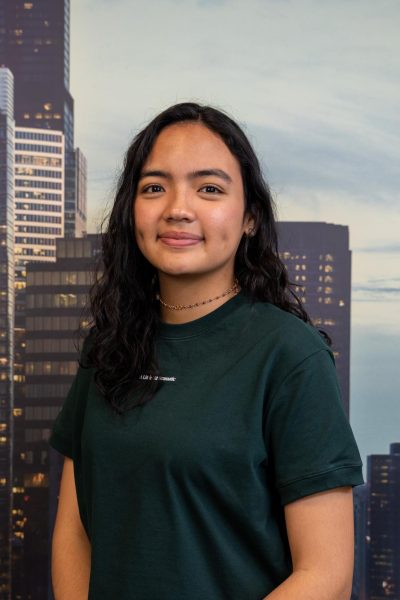Columbia’s American Sign Language program is moving forward with its summer workshops, aiming to keep the campus and local community engaged even after the college decided to phase out the ASL-English interpretation major.
An intermediate workshop begins next week on July 17, meeting Thursdays from 5 to 7 p.m. for six weeks, with a $140 fee. A beginner workshop will start in September with Saturday sessions.
Both workshops will be led by Peter Wujcik, an ASL tutor at Columbia.
The decision to “sunset” the ASL-English interpretation major last fall, part of the college’s ongoing budget cuts. That means the major is closed to new students this fall, although current students will be able to finish their degree.
The college, which depends on tuition to cover operating expenses, was losing money on the ASL-English interpretation major, as the Chronicle previously reported. Former Senior Vice President and Provost Marcella David said last fall that the ASL-English interpretation, dance and art history programs lose $10,001 to $20,001 annually per student because the instructional costs exceed what students pay in tuition.
As of last fall, there were 66 students in the ASL-English interpretation major, down from 94 in Fall 2020, according to the Office of Institutional Effectiveness.
Columbia’s overall enrollment has also declined, from 6,789 students in Fall 2020 to 5,570 in Fall 2025. ASL minors have held steady, with 25 students enrolled in Fall 2020 and 21 in Fall 2024.
Angela Malcomson, a 1996 graduate of the program and a full-time professor for the past 11 years, said she worries about the impact of the closure on the Deaf, DeafBlind and Hard of Hearing community in Illinois.
“I am concerned for the DDBHH community in Illinois because there is already a shortage of qualified, licensed interpreters in the state,” she said.
Despite the uncertainty, Malcomson said the non-credit workshops, which are part of the college, remain a valuable resource for the community.
“The workshops hosted by the ASL program focus on linguistic and cultural awareness, and knowledge and skill development,” she said. “These opportunities benefit all students, faculty and staff and offer opportunities to engage with the community outside of Columbia.”
The ASL program is in the School of Communication and Culture.
Meghan Vozzolo, ASL Interpreter/Coordinator since March 2023, said the ASL minor will be kept for now.
“We have been told this robust minor will continue,” she told the Chronicle. “We have incredible instructors, events and support for these students to become immersed in the language and culture, so we have a positive outlook on the minor staying.”
She added that the school is currently planning events in collaboration with other schools, majors and minors.
While the ASL program looks for ways to stay active, some students currently in the major expressed disappointment over the college’s decision to phase out the program, which has been offered since 1993.
Taryn Yahn, a sophomore ASL major who is set to graduate in 2028, said she is discouraged.
ASL has been part of Yahn’s life and a passion she’s been pursuing since her junior year of high school, where beginner courses were offered. For Yahn, being an ASL student has always been about learning what she can do to be successful, even while doubt shadows her and her degree.
“It’s really sad. I was really looking forward to seeing the new freshman,” she said, “It’s also a lot of pressure to not fall behind or be able to try new things or switch majors if I wanted to explore because I don’t have the option to come back.”
Anya Tapley, a senior ASL major, hoped to possibly combine her two interests of fashion and ASL in the future, using her skills to aid those in the fashion industry.
“Through my times of self-doubt on my skills or if I should even be in this major, I’ve had every teacher encourage me to keep going.” She said, “The tutors, teachers, and student body that make up this department are some of the most supportive and caring people I’ve met.”
Tapley switched majors from fashion in Fall 2023 after she took a 200-level CCCX course called “Did you just flip me off? Deaf people and linguistic diversity in Chicago,” taught by Diana Gorman Jamrozik.
Jamrozik was one of 20 full-time faculty members who lost their jobs at the beginning of the summer in the second round of layoffs since January. In total, 43 full-time faculty have been laid off since January.
Jamrozik began working for the college as a part-time instructor in September 1998 and became a full-time faculty member in February 2000.
“I am immensely proud of the legacy of our program. Our graduates are leaders in the fields of interpreting, linguistics, Deaf studies and many other areas,” she told the Chronicle. “Our alumni continue to inspire me every day with their dedication and passion for making the world a better place, and I could not be more proud of each and every one of them.”
Copy edited by Vanessa Orozco









